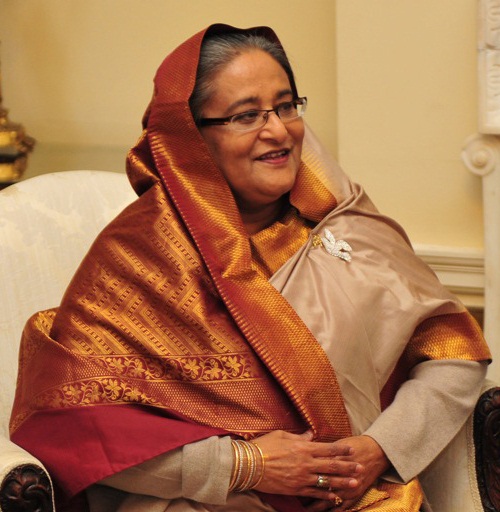Bangladesh army chief’s decision signals end of Hasina’s 15-year rule
In a dramatic turn of events, Sheikh Hasina, the long-standing Prime Minister of Bangladesh, has fled the country amidst severe and escalating protests. The pivotal moment came after Gen. Waker-Uz-Zaman, the chief of the Bangladesh army, informed Hasina that his troops would not enforce the nationwide curfew imposed in response to the unrest.
On the night before Hasina’s sudden departure, Gen. Zaman held an emergency meeting with his generals. During this meeting, he communicated to Hasina that the army would be unable to suppress the civilian protests and enforce the curfew she had called. This development marked a decisive break in support for Hasina, who had been in power for 20 of the past 30 years.
Embed from Getty ImagesThe nationwide curfew was imposed after violent clashes on Sunday resulted in at least 91 deaths and hundreds of injuries. The unrest, triggered by a controversial court ruling on government job reservations, quickly expanded into broader anti-Hasina demonstrations. Protestors have been demanding her resignation, leading to widespread disorder and significant loss of life.
Gen. Zaman’s decision not to use force against civilians left Hasina’s position untenable. The military’s refusal to support her lockdown measures signalled the collapse of her control over the country. On Monday, facing mounting pressure and with protests spiralling out of control, Hasina and her sister fled to India.
The circumstances surrounding her departure were expedited by India’s diplomatic intervention. Indian Foreign Minister Subrahmanyam Jaishankar confirmed that Hasina requested temporary asylum in India following a meeting with security leaders. The urgency of her departure and the need for a short-term stay in India were underscored by concerns about the impact on India-Bangladesh relations and the possibility of diplomatic fallout.
Upon arrival in India, Hasina was met by Ajit Doval, India’s National Security Advisor, at the Hindon Air Base. The swift evacuation reflects the deep historical ties between Hasina and India, which have fluctuated over the years. Despite her past cooperation with India, there is now criticism from some quarters in Bangladesh regarding the safe passage she was granted.
The protests, which began as student-led demonstrations against job reservation policies, evolved into a broader movement challenging Hasina’s authoritarian rule. The resignation of Hasina and her departure from Bangladesh signify a major shift in the country’s political landscape.
As Bangladesh grapples with the aftermath of Hasina’s departure, there is significant public and political speculation about the future direction of the country. Nobel laureate Muhammad Yunus has emerged as a key figure in discussions about potential leadership in the interim government. The political situation remains fluid, and the next steps will likely shape Bangladesh’s trajectory in the coming months.
Analysis
Political: The army’s refusal to enforce the curfew highlights the critical role of military support in maintaining political control. Hasina’s fall underscores the vulnerability of long-standing leaders to shifts in military loyalty and public unrest. Her departure marks a significant turning point in Bangladeshi politics, raising questions about the stability of the new leadership and the future of democratic processes in the country.
Social: The protests and the subsequent fall of Hasina reflect widespread dissatisfaction with her governance and policies. The unrest has mobilized a diverse range of groups, from students to retired military personnel, illustrating the deep-seated grievances against her regime. The situation has led to a reevaluation of public trust in leadership and institutions.
Racial: While the primary focus of the unrest has been political, the ethnic and religious composition of the protestors and their grievances against Hasina’s policies may influence future developments. The dynamics of ethnic and religious identity in Bangladesh could play a role in shaping the responses of new political leaders and the public.
Gender: Hasina’s role as a female leader in a predominantly male-dominated political environment adds a layer of complexity to the situation. Her departure and the handling of the protests may have implications for the representation and participation of women in Bangladeshi politics.
Economic: The political instability resulting from the protests and Hasina’s departure could impact Bangladesh’s economic stability. Disruptions to governance and public order may affect business operations, foreign investment, and overall economic confidence in the country.
